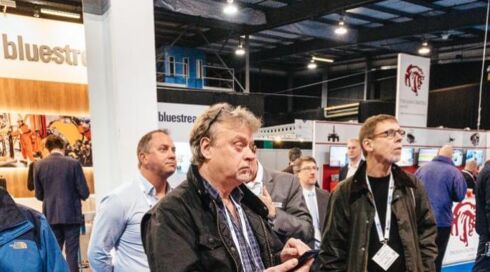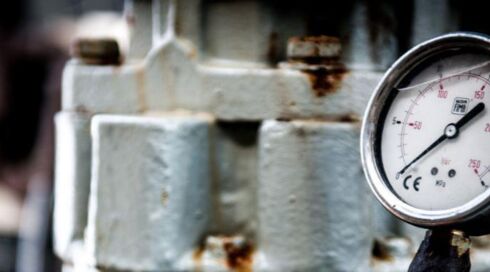3
“In the offshore survey industry, the 24hr day and the 7 day week have no relevance. Every job is different and unpredictability is the only predictable factor, it is a rarity when everything goes off ‘the same as last time’!” Survey Client Rep, Dom King, talks to Atlas about why he chooses to work in such a demanding industry.
Why did you choose this position?
“Whilst studying for my BSc (Hons) degree in Surveying and Mapping Sciences from the University of Newcastle upon Tyne, I decided that I wanted to work onshore as a land surveyor. However, in my final year, I realised the potential that offshore survey had to offer. There are a number of factors that have driven me to work in this environment: the teamwork element, variety, the challenge and responsibilities of the role. There is a feeling that when you are offshore you are all in the same boat (so to speak). Although our roles (Client Rep v Contractor) are potentially adversarial, there is always the sentiment that everyone is working towards the same goal. I’m not sure this would always apply when working onshore in an office.
What motivates me is the knowledge that I have an important role to play in the efficient running of a project for the client. What’s challenging to me is that even though I no longer have a hands-on role in the acquisition of data, I still have a hand in managing the use of the equipment and the crew to achieve the goals of the client, this is made more difficult by the fact that we are usually managing by consent and advice rather than by waving a big stick.”
Why did you want to work in this industry?
“One of the things that I also like about this job and this industry is the variety: the vessels, crews, clients, projects, locations, roles and challenges are always changing. You simply never know exactly what to expect when you next leave your front door. Additionally, I appreciate the excellent remunerations and the time off I get in the role – however, planning anything in advance is close to impossible.
How would you describe your job?
"Regardless of the project, it is my job to ensure that the goals of the client that have been outlined in the contract are achieved in an efficient and safe manner.
In certain cases such as positioning or overseeing a rig move, my main responsibilities are to the Rig Positioning Contractor and to ensure that they follow the contract. I also act as the final word on all matters survey or positioning related on the Rig move.
When undertaking a Geophysical or UXO project, my responsibilities relate to the functioning of the vessel as a whole, her crew and equipment. I am the Client’s Representative as well as the Survey Rep. I work alongside the Master, PC and heads of department in all decisions relating to the vessel and her readiness, vessel movements, mode of operation, data quality, data dispatch, weather and any resulting disputes.
On larger offshore vessels and projects there are sometimes two Reps, in which case I will often be paired with a Geophysicist so that we can enhance the area of expertise on a project. In these circumstances, I would look after all matters regarding survey and positioning, whilst the Geophysicist would look after matters such as seismic processing or data interpretation. When we are paired up like this, the senior or more suitable candidate would become the Client Rep, he gets the pleasure of day shifts and all the meetings and communications. On most occasions, we would find some way of dividing up the work so that neither of us is swamped.”
What have been the highlights of your career so far?
"I think doing the geophysical survey for the inshore and offshore Inchcape Wind Farm was one of the biggest highlights of my career. This project sticks with me the most because I got to work in the Firth of Forth. For half of the project I sailed under the iconic Forth Rail Bridge twice every day, for the second I worked out of Port of Leith. On both parts of the project, I was working with a great team on a good boat in a beautiful environment. The only bad thing was that on the two phases, over 2 months of work, I only got one day ashore in Edinburgh. It was also rewarding in that I did the whole cable route survey, from beach topographic to the offshore substation, something we don’t get to do that often."
What’s the next step in your career?
"Being a Survey/Client Rep takes you to the sidelines a bit, the hands-on skills you had when working for a survey contractor tend to fade so it’s difficult to go back. The skills you then develop don’t necessarily lead you towards any other position in survey management. Despite this, it’s really not so bad, as your experience develops the projects you take part in are more varied, larger and sometimes more complex. It’s a role which you could easily continue to do right up to retirement.
From here I would do exactly as I outlined above, move into longer and larger projects with greater involvement, such as diversifying my Rep experience to cover construction support, pipelay and trenching support…or indeed any other type of project."
.png)
.png)


